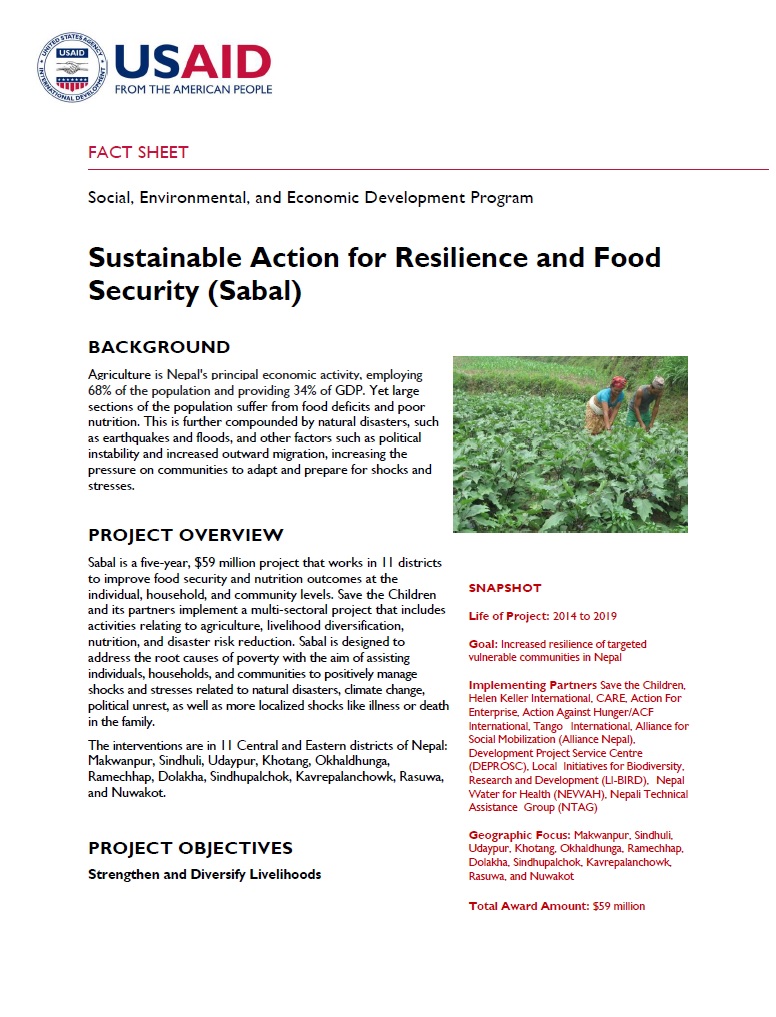Agriculture is Nepal's principal economic activity, employing 68% of the population and providing 34% of GDP. Yet large sections of the population suffer from food deficits and poor nutrition. This is further compounded by natural disasters, such as earthquakes and floods, and other factors such as political instability and increased outward migration, increasing the pressure on communities to adapt and prepare for shocks and stresses.
Sabal is a five-year, $59 million project that works in 11 districts to improve food security and nutrition outcomes at the individual, household, and community levels. Save the Children and its partners implement a multi-sectoral project that includes activities relating to agriculture, livelihood diversification, nutrition, and disaster risk reduction. Sabal is designed to address the root causes of poverty with the aim of assisting individuals, households, and communities to positively manage shocks and stresses related to natural disasters, climate change, political unrest, as well as more localized shocks like illness or death in the family.
The interventions are in 11 Central and Eastern districts of Nepal: Makwanpur, Sindhuli, Udaypur, Khotang, Okhaldhunga, Ramechhap, Dolakha, Sindhupalchok, Kavrepalanchowk, Rasuwa, and Nuwakot.
PROJECT OBJECTIVES
Strengthen and Diversify Livelihoods
- Empower individuals and local organizations, and facilitate market access to increase resilience and improve access to economic opportunities
- Strengthen farm-to-market links, encourage investment, improve access to inputs and agricultural services, and increase off-farm income
- Promote diversified livelihood opportunities, including masonry and other relevant housing reconstruction skills
- Improve financial literacy, increase savings, and promote productive investment of remittance income
- Strengthen women’s participation in decision-making
Improve Health and Nutritional Status
- Promote the adoption of improved health, water and sanitation, and nutrition behaviors for mothers and their children
- Influence positive health and nutrition behaviors using social marketing tools and mass media
- Support community mobilization through Female Community Health Volunteers, mothers' groups, and schools
Strengthen the Ability of Households and Communities to Mitigate, Adapt to, and Recover from Shocks and Stresses
- Ensure that individuals, households, and communities have the necessary processes, information, and services for sound risk management
- Promote integrated disaster risk management (DRM) and climate change adaptation (CCA) planning, and develop disaster early warning systems in partnership with stakeholders
- Increase local access to weather information and train community leaders and farmers to use data for agriculture and risk management
Sabal uses a dynamic cross-cutting gender equity and social inclusion approach across all project activities to ensure women’s empowerment and inclusion.








Comment
Make a general inquiry or suggest an improvement.